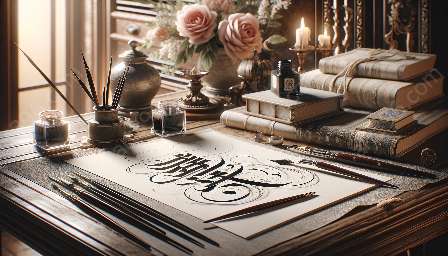Calligraphy, music, and dance share profound connections that have been cultivated over centuries of human expression. In this article, we'll explore the intricate relationship between calligraphy, music, and dance, and discuss how modern calligraphy is compatible with these art forms.
The Art of Calligraphy
Calligraphy is the visual art of decorative writing, characterized by its expressive strokes, rhythmic patterns, and intricate compositions. It has a rich history that dates back to ancient civilizations, where skilled scribes would meticulously craft beautiful scripts and ornate designs.
The Harmony of Music and Calligraphy
Music and calligraphy are both forms of artistic expression that rely on rhythm, flow, and emotion. In calligraphy, the movement and cadence of each stroke mirror the melodic patterns found in music. The visual beauty of calligraphy can evoke the same emotional response as a captivating musical performance.
The Elegance of Dance and Calligraphy
Dance, like calligraphy, is a display of grace, fluidity, and rhythm. The sweeping gestures and choreographed movements of dance resonate with the expressive nature of calligraphy. Both art forms transcend language and communicate through the universal language of movement and form.
Modern Calligraphy and Artistic Collaboration
In the modern era, calligraphers, musicians, and dancers are discovering innovative ways to collaborate and merge their talents. Calligraphic art installations are accompanied by live music and dance performances, creating immersive experiences that engage all the senses. Modern calligraphy has adapted to the digital age, allowing for interactive displays and multimedia presentations that seamlessly integrate music and dance.
Exploring Multisensory Experiences
By merging calligraphy with music and dance, artists have the opportunity to create multidimensional, multisensory experiences that captivate audiences. Visual, auditory, and kinesthetic elements intertwine, resulting in performances and exhibitions that transcend traditional boundaries and ignite a new wave of artistic expression.
Conclusion
The interdisciplinary connections of calligraphy with music and dance reveal the intricate tapestry of human creativity and expression. By embracing the harmonious relationship between calligraphy, music, and dance, artists continue to push the boundaries of artistic collaboration and innovation. The fusion of these art forms enriches culture, inspires creativity, and invites audiences to embark on a journey of sensory discovery.

